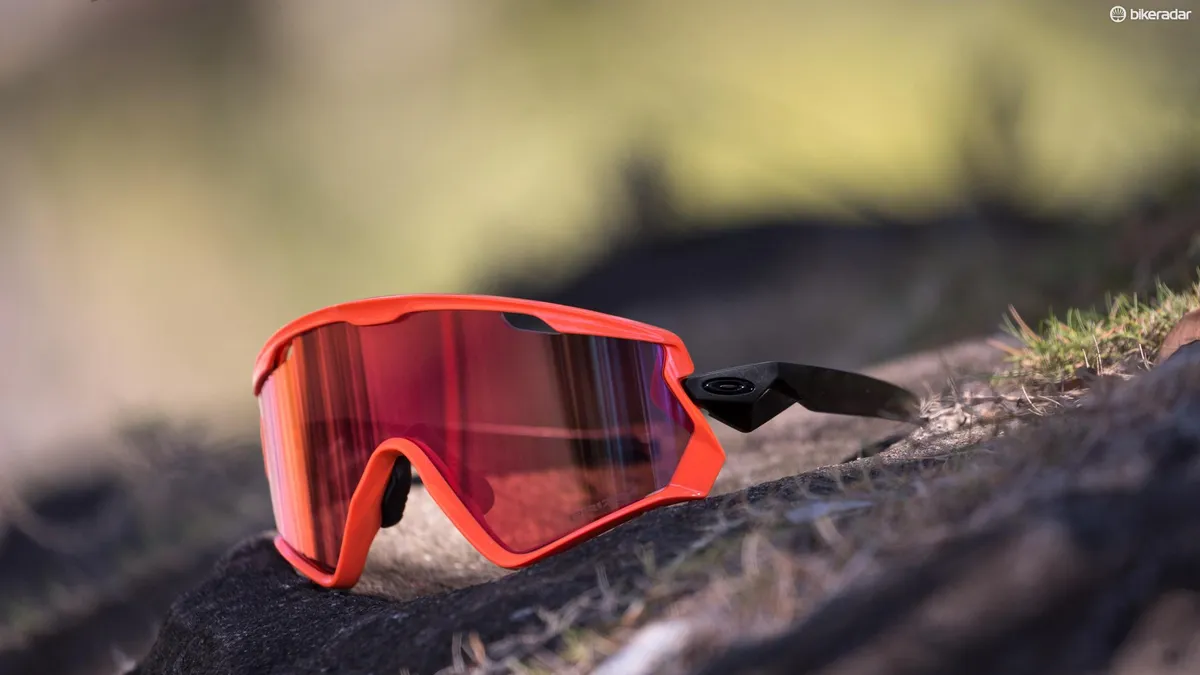Oakley’s Wind Jacket 2.0 sunnies are not for the faint of heart; they are big and bright but are a solid set of cycling shades.
- Oakley EVZero sports glasses review
- Oakley Jawbreaker Prizm Road sunglasses review
- Best sunglasses for cycling
They are technically positioned in the brand's lineup as a ‘goggle’, and with the massive coverage, removable triple layer face foam and even an optional strap this description is apt, but I’d still classify them as sunglasses.
From the top of the frame to the bottom measures 80mm, that’s nearly double the 53mm of the Jawbreaker and similarly-sized POC DO Blade. This additional size did cause the top of the frame to bump on some lower slung helmets, like the Scott Centric Plus, POC Octal and the new Bontrager Velocis, however there was no such issue with the Met Strale.
That said, with such a large lens the frame sits well outside your field of view, even in full aero TT position.
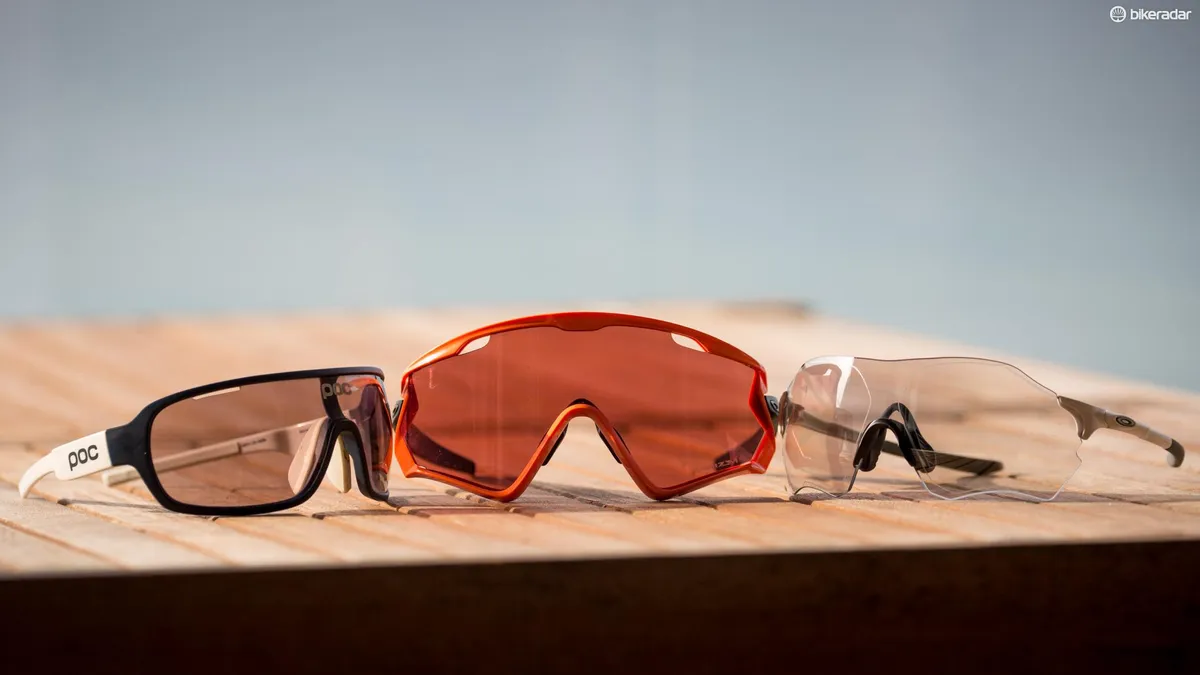
At their widest point, the Wind Jacket 2.0's measure 150mm, with the lower section of the lens slightly scalloped to make a bit of room for your cheekbones.
The ‘Unobtanium’ nosepiece isn’t adjustable and it’s strung quite wide too. For the record, I have a pretty big schnoz, and the wide nosepiece perched the sunnies in just the right spot on my face — those with noses closer to the button variety might not find the same fit.
In rare form for Oakley, the ear stocks aren’t rubberised and are quite short. Tested with every lid I had lying around the office, the arms do not interfere with the retention system and despite the lack of tacky coating stayed planted on my face through extremely rocky sections of singletrack and washboard dirt roads.
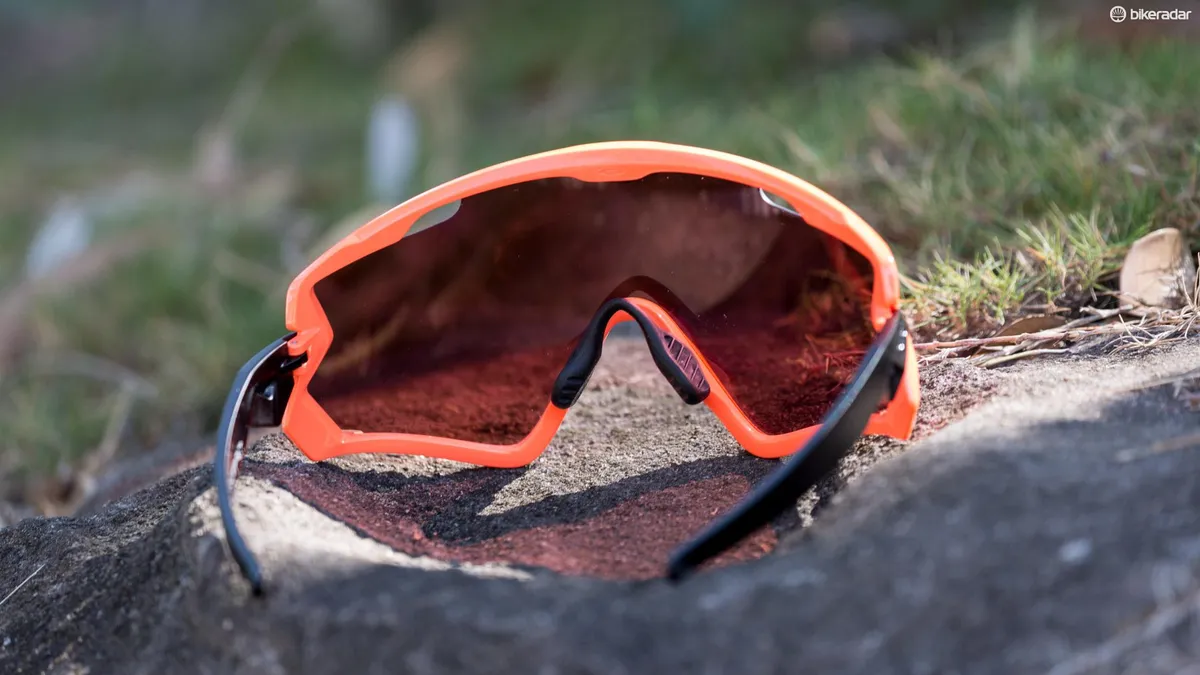
As the Wind Jacket 2.0s are classified as a goggle they come with a removable strip of triple density face foam, which plugs into the vents at the top of the lens. The idea of this being to prevent debris, sweat and some wind from sneaking over the top of the frame and into your eyes. I found it was hot and quickly became saturated with sweat and I quickly removed it.
I didn’t have any trouble with fogging, in a wide range of temperatures. With decent sized vents at the top of the lens and small channels in the bottom corners, in combination with the lens actually sitting quite far off your face, there is plenty of airflow to the lens that combats moisture.
The coverage is second to only a goggle and I would argue that the Wind Jacket 2.0s offer a similar amount of protection without many of the negatives that come with riding in goggles.
These sunnies really shined in the rain with the massive lens creating a veritable shield against moisture falling from the sky, but also the water, mud and grit that gets kicked up off the ground by other riders.
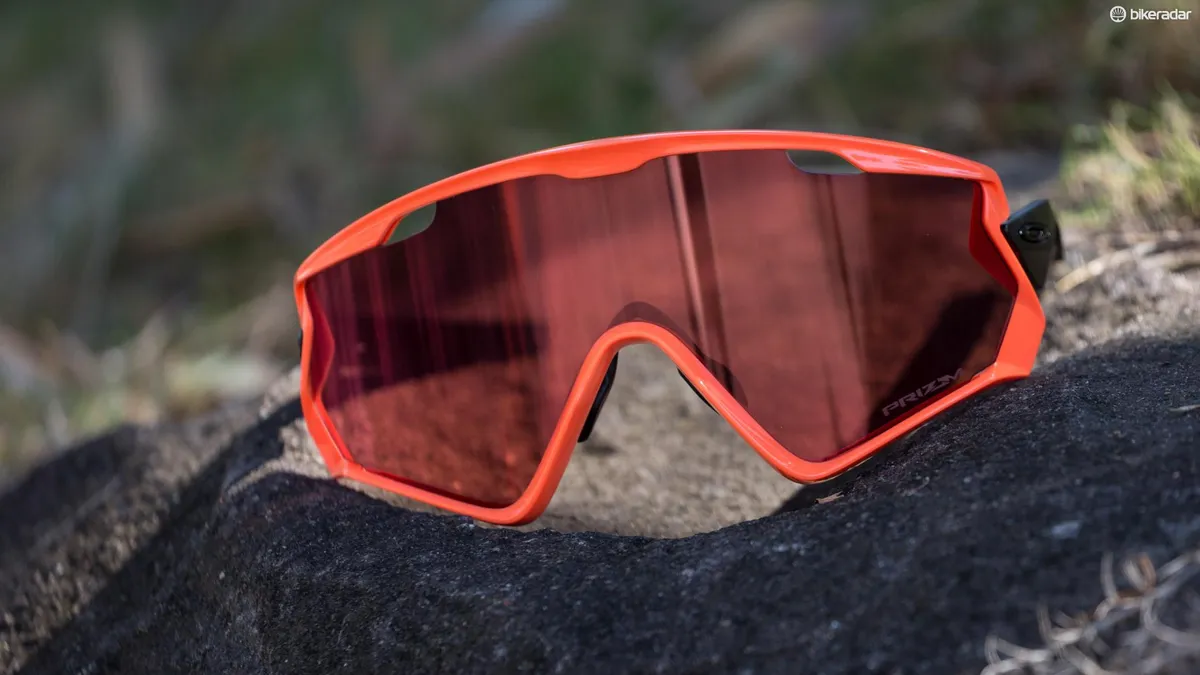
In the past couple of years, Oakley has decided to only apply its hydrophobic coating to the outside of its lenses, but we’d really like to see it on the inside too. No matter how hard you try, there are always sweat smears on the inside of the lens.
For the moment, the Wind Jacket 2.0 is only available with Oakley’s Prizm Snow lens, however, I was very impressed by how it performed on the road and trail. Designed to prevent snow blindness and eyestrain in the bright sun, while at the same time adding contrast to the white abyss of a flat light day on the snow, this translated extremely well to riding environments.
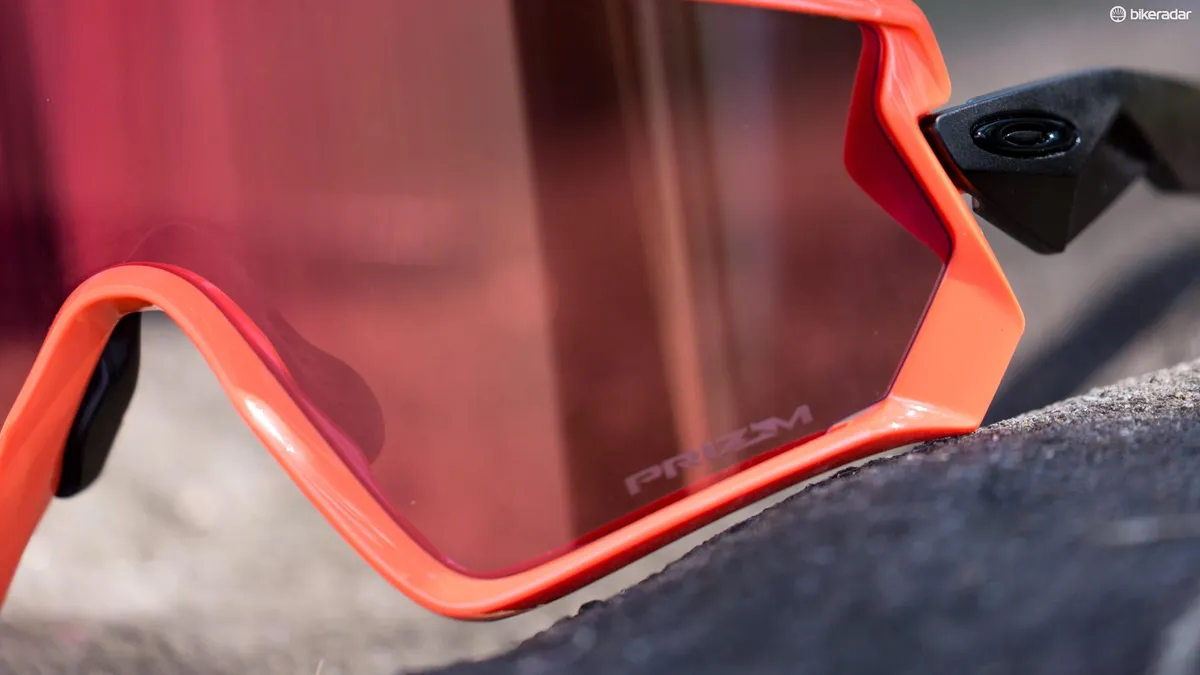
Colours on the road and trail are rich and saturated, and there is plenty of contrast to play with helping your eyes pick out obstacles, hazards and imperfections quickly. I’d even go as far as saying the Snow Prizm lens is a better crossover between road and trail than the Road Prizm lens.
The aesthetic is likely to polarize riders, but for the fashionable roadies or enduro bros and bro-detts who aren’t big fans of goggles, the Windjacket 2.0s are worth a look.
